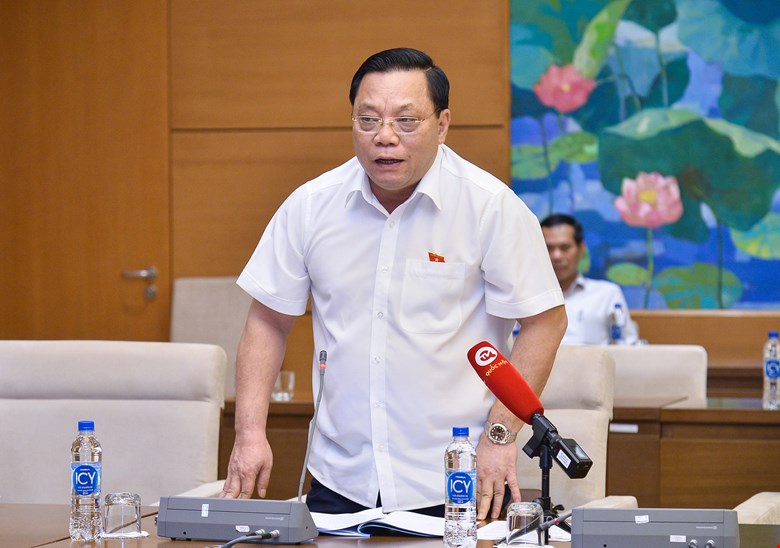On October 30, the National Assembly discussed in groups and gave opinions on the draft Resolution on piloting the handling of evidence and assets during the investigation, prosecution, and trial of a number of criminal cases.
Delegate Nguyen Huu Chinh - former Chief Justice of the Hanoi People's Court cited that according to regulations, when initiating a case, the investigation agency has the right to freeze and seize assets. However, the final agency to handle these assets is the court, so the time is very long, often lasting 1-2 years, causing damage to evidence.
The delegate cited the previous case at Bach Mai Hospital, where medical equipment worth 40 billion VND was frozen and seized, but after the case was handled, no one dared to accept it and it was transferred to another hospital, so it had to be left empty.
There are even cases where machinery has been left for several years and has become scrap metal. Therefore, delegates suggested that the handling of these cases should not be limited to corruption cases but should be expanded in scope.

Delegate Nguyen Hai Trung - Director of Hanoi City Police - also said that Hanoi Police are having to manage a very large amount of property evidence, which is very wasteful, while there are properties that have been left for too long and lost their value, causing waste and property wear and tear.
"Not only that, the locality must also have an evidence warehouse. For inner-city districts, where can we get land to build a warehouse with a large amount of evidence? In addition, we must also arrange for someone to look after it," said delegate Nguyen Hai Trung.
From the above analysis, delegate Nguyen Hai Trung said that the issuance of this document is very necessary. However, in addition to the cases and incidents that the Central Steering Committee on Anti-Corruption and Negativity monitors and directs, he suggested that it is necessary to consider expanding the scope, even having a law on this matter and shortening the pilot period.
Regarding the scope of application, delegate Nguyen Phuong Thuy - Vice Chairman of the National Assembly's Law Committee, agreed with the proposal in the draft that the pilot scope should not be expanded. Thereby, it should only focus on cases that the Central Steering Committee on Anti-Corruption and Negligence monitors and directs.
Delegates said that the pilot period can be flexibly regulated, not necessarily 3 years, and can be evaluated while doing it, and combined with amending other laws.
Regarding the prevention of asset dispersion, delegate Duong Ngoc Hai (HCMC) raised the issue that the measures of asset seizure and freezing are carried out after prosecution, so what about the stage of handling information sources from the beginning?
“The purpose of anti-corruption is to prevent the dissipation of assets. Before prosecution, there are no measures to handle it, and the law cannot regulate it. So how will this draft handle it, what are the measures to handle information sources?”, the delegate wondered.
After studying the draft resolution, delegate Truong Trong Nghia (HCMC delegation) was not satisfied with the regulations on real estate assets, money, material, shares, stocks, bonds and areas related to banking.
Referring to the principle of presumption of innocence, the representative of the Ho Chi Minh City delegation said that the resolution proposed to apply from the stage of handling the denunciation, but the general principle is that when there is no effective court judgment, the person is still treated as innocent. Suddenly there is a petition sent to the investigation agency and the property has been handled, which may not be really appropriate.
“There are countless reports of denunciations, denunciations of hatred, denunciations of competition, denunciations of misunderstandings, and cases of wrongful convictions due to denunciations. Many years later, we had to apologize, and by then all our assets had been lost.
The resolution needs to clearly define measures for handling assets in accordance with the principle of presumption of innocence and in accordance with the right to dispose of assets at different stages of the criminal process," the delegate stated.











